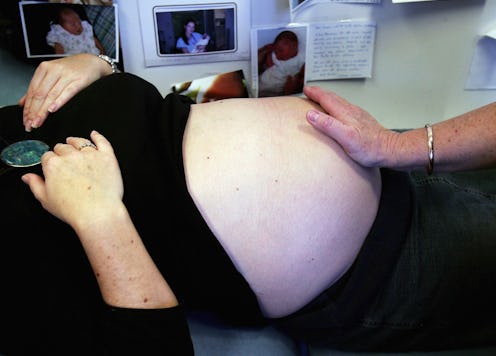News
Reproductive Rights Means Affordable Pregnancy Care Coverage, Too

When people think about "reproductive rights," access to abortion and contraception to prevent unwanted pregnancies come to mind. However, equally important is ensuring affordable medical services for women who do choose to give birth. Unfortunately, for millions of American women, the experience of pregnancy is often riddled with hidden costs, even under the Affordable Care Act.
Specifically, rarely discussed within the Beltway or the media is how insurance providers are not required to cover the cost of ultrasounds.
A recent study by Amino — a startup that aims to improve health care transparency — found that the median cost of an ultrasound at a hospital is $686. Even women with insurance could wind up having to pay some or all of that price, making ultrasounds one of the most significant hidden fees women experience while seeking prenatal care. Most women, Amino reports, have three ultrasounds over the course of a pregnancy — meaning that imaging alone could cost a mother-to-be over $2,000, possibly entirely out-of-pocket.
Under the Affordable Care Act, providers are required to cover "maternity care" as an essential health benefit, but Amino content strategist Hannah Levy, who wrote the ultrasound report, tells Bustle, "The Affordable Care Act has really loose language with regards to certain types of procedures. It allows insurance companies to interpret what they mean by maternity care." This setup means that some providers may choose not to consider ultrasounds as an essential component of "maternity care" — leaving unsuspecting patients with the bill.
"I went to my first doctor’s visit, didn’t realize I’d be getting an ultrasound that day, didn’t know when my next one was going to come, wasn't sure how many I'd need, and had no idea that insurance didn’t cover it," Levy, who happens to be in her third trimester, says. "That was a very eye-opening fact for me, personally, when I got the bill."
Adding to the complications over coverage for pregnant women is that insurance providers can also cite the debate over whether ultrasounds actually are medically necessary. The website of the American Pregnancy Association states, "many healthy pregnancies will not require ultrasound." However, the American College of Obstetricians and Gynecologists, according to the Amino report, recommends one to two ultrasounds during a healthy pregnancy. Higher-risk pregnancies, like twins/triplets or pregnancies where the expectant mother is over 35, may require more ultrasounds to monitor health.
Ultimately, uncertainty about prenatal health care costs adds unnecessary stress to the experience of pregnancy. One of, if not the, best ways to resolve the concerns about ultrasound costs for pregnant women is to more clearly define "maternity care" as an essential health benefit. That would enable women to know ahead of time exactly what to expect from their insurance provider.
However, with a Congress bent on repealing ACA rather than reforming it, a major legislative improvement at the national level seems unlikely.